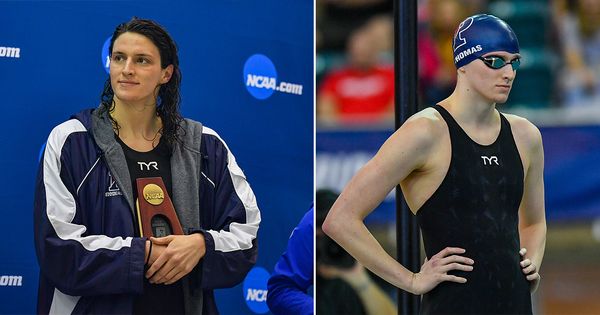
Lia Thomas, a transgender athlete who previously competed as a man on the University of Pennsylvania’s swim team, has announced her retirement from competitive swimming as a woman. While Thomas has received praise for her achievements, critics argue that her participation in women’s events gives her an unfair advantage. The ongoing discussion surrounding transgender athletes in women’s sports has sparked intense debates about equity, gender, and the integrity of competition.
In her retirement statement, Thomas expressed the emotional challenges she faced and the struggle to find acceptance and fairness in a sport she loves. She emphasized that no athlete should experience isolation or discrimination based on their identity. However, critics and fellow athletes argue that including transgender women in women’s sports is not fair.
Opponents of Thomas’ participation argue that even with hormone therapy and other transitional surgeries, biological differences between men and women remain. They point out that biological men generally have larger lung capacity, bigger hearts, greater circulation, a larger skeleton, and less fat, giving them a physical advantage over women. Some believe that allowing transgender women to compete against cisgender women is unfair and undermines the integrity of women’s sports.
The debate surrounding transgender athletes is not limited to Thomas’ case. Cynthia Millen, a former USA Swimming official, resigned from her position, stating that she couldn’t stand by and watch as girls are disadvantaged by competing against “biological” male athletes. Millen emphasized that swimming is a sport where bodies compete against bodies, and men’s bodies are different from women’s bodies.
The NCAA has set rules for transgender participation in women’s sports, requiring transgender players to undergo one year of testosterone suppression. However, critics argue that despite these rules, the advantages conferred by male biology still exist. They worry that allowing transgender women to compete against cisgender women could lead to the exclusion of cisgender athletes from the top ranks of competition.
Thomas’ dominance in women’s swimming has sparked further controversy. Competitive swimmers, along with the head coach and national team director of USA Swimming, sent a letter to the NCAA Board of Governors questioning the fairness of Thomas’ participation and the potential damage it could cause to the sport. The letter highlights the difficulties of trying to appease everyone while maintaining fairness in competition.
In 2022, Thomas’ ambitions to compete at the Olympics were denied by World Aquatics due to concerns about fair competition. The organization is establishing an “open” category for transgender athletes in some events to ensure inclusivity without unfair advantages.
Thomas’ retirement has prompted supporters to call for a more inclusive approach to athletes and identity in sports. They believe her departure represents a loss for the sport and a need for re-evaluating the ethical, biological, and societal aspects of transgender participation.
However, not everyone shares this sentiment. Some people view Thomas’ retirement with satisfaction, believing that allowing transgender women to compete against cisgender women undermines the progress women have fought for. They express concern about the potential physical advantages that transgender women may possess, based on their biology.
As the debate continues, it raises important questions about how to balance inclusivity and fairness in sports without disadvantaging cisgender athletes. It also calls for reflection on the opportunities, acceptance, and spaces available to athletes, regardless of their gender identity.
READ MORE
- The first transgender NFL cheerleader joins the Carolina Panthers Cheer Squad
- Latest Texas law restricts transgender students playing on school sports teams




